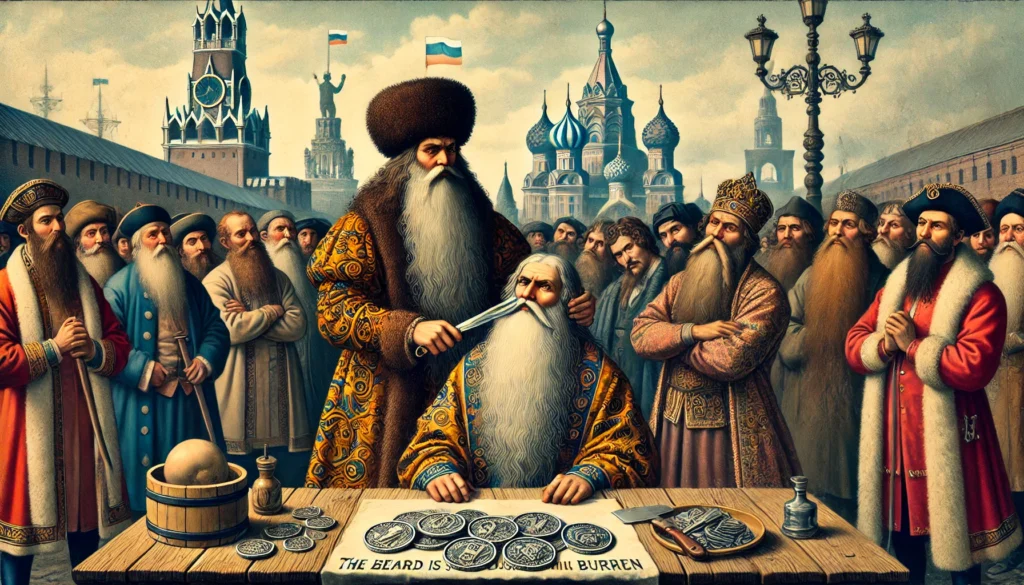Beards have long been a symbol of wisdom, power, and style in many cultures, but for one Russian czar, they represented an outdated way of life that needed to go—literally. Enter Peter the Great and his infamous beard tax, one of history’s funniest (and weirdest) attempts at societal reform.

The Problem with Beards (According to Peter)
In the late 17th and early 18th centuries, Russia was lagging behind Western Europe in terms of modernization. While France and England were embracing science, art, and industry, much of Russia was clinging to old traditions, including long, luxurious beards. For Peter the Great, who had toured Western Europe and admired its clean-shaven sophistication, beards symbolized Russia’s resistance to progress.
To force his people into a more modern, European image, Peter decided to take drastic measures: he launched a war on facial hair.
The Beard Tax is Born
In 1698, Peter issued a decree that anyone who wished to keep a beard had to pay for the privilege. The tax wasn’t just for wealthy nobles—it applied to nearly everyone. Peasants entering cities had to cough up a few kopeks, while nobles and merchants had to pay considerably more, depending on their social standing.
Those who paid the tax were issued a special token to prove their compliance. These tokens were inscribed with phrases like: “The beard is a superfluous burden.”
A Beard-Enforcing Bureaucracy
To ensure compliance, Peter established a sort of “beard police” who would patrol the streets, armed with razors. If they caught someone sporting a beard without a token, the offending facial hair would be forcibly shaved on the spot.
Naturally, this caused widespread frustration and hilarity. Imagine burly Russian men hiding their beards in scarves or sneaking through alleyways to avoid a surprise shaving ambush. Some even tried to fake the tokens or bribe the beard police to keep their cherished whiskers.
Cultural Resistance
Unsurprisingly, many Russians were outraged. For devout Orthodox Christians, beards weren’t just a fashion statement—they were seen as a divine gift and a mark of piety. Cutting off a man’s beard was considered a serious affront, akin to insulting his honor.
Despite the backlash, Peter persisted. He was determined to drag Russia—kicking, screaming, and shaven—into modernity.
The Ironic Legacy
Peter’s beard tax remained in place for decades, though enforcement gradually waned after his death. While the tax didn’t completely rid Russia of beards, it did make Peter’s modernization efforts unforgettable.
Today, the beard tax is remembered as a humorous (and slightly ridiculous) episode in history. It serves as a reminder that cultural change isn’t always smooth—and that messing with people’s facial hair is a surefire way to spark rebellion.
So, the next time you look in the mirror, take a moment to appreciate your beard (if you have one). At least no one’s charging you for it—yet!
